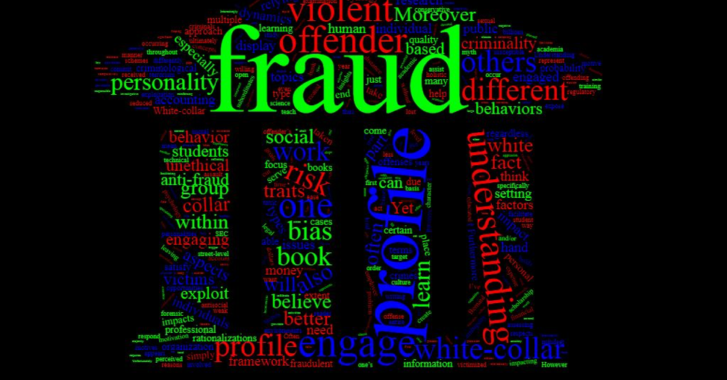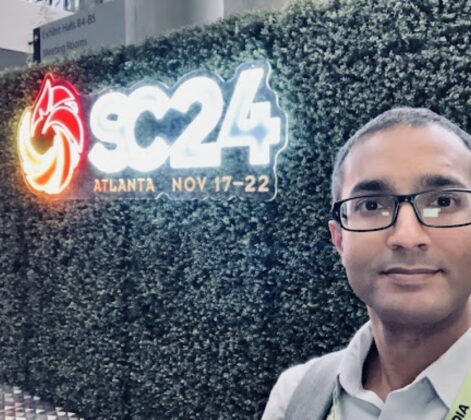By Elizabeth Leake (STEM-Trek)
Those who know me well may recall me talking about the “psycho-fraud” book I was editing last summer. It’s now available on Amazon, and the author has graciously donated 14 copies to STEM-Trek—four are signed! They will be re-gifted to those who make a tax-deductible donation to STEM-Trek that will support our summer AI4GOOD@PEARC19workshop (see details toward the end of this article).
But I’m getting ahead of myself; to fully appreciate this event, we should go back 18 months…
In 2018, I covered seven international tech conferences, and put five new stamps on my passport. I downsized from an aging 1,500 square foot home on a one-third acre lot in northern Illinois where I had lived since 2000, and moved to a brand-new, one-bedroom apartment in Iowa City where everything works (including me, in a temporary contract with the University of Iowa). By lightening my load, I am more agile for when opportunity knocks as it failed to do in Illinois. When I wasn’t traveling or selling stuff my children didn’t want, I was writing and editing. You might say 2018 was my mid-life gap year.
Among editorial projects was what I affectionately called “the psycho fraud book” when my children and friends wondered what kept me up at night. The book, by Frank S. Perri, is titled, “White-Collar Crime, Organizational Misconduct and Fraud Examination: An Accounting, Behavioral and Criminological Approach.”
When I received the 1,379-page manuscript in March, I figured I would edit a few chapters a week and have it finished by the time I began traveling in June. But it was a painfully slow edit, because the content was so depressing. Some days, I had to put it away after a few hours. I wasn’t able to get through all of it before it had to go to press in July, so I can’t claim to have edited the entire book. But I have read every page, and I can attest to its value and importance to society—especially today.
Mr. Perri is a former prosecutor with experience as a criminal defense counsel. He is also a certified fraud examiner, certified public accountant and lecturer. He has authored several articles in the past, and coined the term, “red-collar crime” to describe when a white-collar criminal turns violent, as many do.
As a criminal defense counselor in a town that shares the same crime index (5) as East St. Louis, Missouri (said to be the second most dangerous city in the country), Perri has spent countless hours face-to-face with the accused who, in their hour of need, profess desperate rationalizations for their malignant behavior. The most hard-core among them portray themselves as victims, even when evidence against them is damning. While all are presumed innocent until proven guilty, he has known a lot of culpable culprits over the past 20 years. Since between 15 and 25 percent of men who are incarcerated in the North American correctional system are thought to be psychopaths (more research is needed on female offenders, but it’s probably no different), he understands better than most how they think. He has skillfully connected the dots across dozens of case studies documented by criminologists, psychologists and other legal professionals, and highlights from the past ten years are chronicled in his book.
Though he writes like a scholar, Mr. Perri wanted this book to be easily understood by the range of professionals who are in a position to mitigate fraud. By sharing his insights about how criminals think, and why they act the way they do, he hopes that CEOs, CIOs, COOs, city administrators, military officers, human resource managers, auditors, investigators, and fraud examiners can prevent organizational misconduct from ever happening. This book identifies personality traits and behaviors that are common among those who are most likely to commit fraud. The knowledge can prevent psychopaths—masters of impression management—from being hired, or promoted before they bring an organization to its knees.
As I immersed myself in the content, the characters sprang to life, and accounts of their actions left me both traumatized and spellbound. When I wasn’t editing, I grew obsessed with documentaries about psychopaths, fraud and homicide. Even the daily news began to feed the growing beast within me; for example, Michael Cohen, President Trump’s former “fixer” turned informant, could have been a character out of a number of cases examined in the book. Perri talks at great length about how the “tone at the top” establishes organizational culture. Cohen’s testimony about the role he and others in President Trump’s orbit who were indicted (for a variety of crimes) echoed roles played by characters in the ADM and ENRON cases.
The art of impression management was beautifully demonstrated by fraudster Elizabeth Holmes (Theranos); she was indicted last June about the time I was reviewing the chapter on female offenders. While it may have gone unnoticed by some, Holmes always wore black, and usually a black turtleneck—a nod to Apple Icon Steve Jobs’ uniform—which became her subtle way of promoting the illusion of technical brilliance and building confidence in her brand of snake oil. Something like wearing a black turtleneck, alone, doesn’t point to a propensity for fraud; there is a laundry list of personality traits and behaviors that, once recognized—in relation to the another or independently—will begin to raise red flags. Sadly, every day more such cases are exposed; thus, the importance and timeliness of Perri’s book.
This editing experience, and subsequent enlightenment, have changed me forever. Like the boy in the movie who sees dead people, I now see bad people—I can also identify opportunities that a psychopath is likely to exploit, and take proactive measures to secure vulnerabilities within my control, and report others. While we like to think the best of everyone, statistically one percent of the population would willfully harm us, without remorse, and move on with a smile to the next victim or situation that satisfies their lust for corruption, violence or profit.
Because I normally work in the research computing world, I can now see how fraud could occur in university compute centers where the back-door could be left open for bad actors to exploit computational cycles or data for nefarious reasons. Intellectual property could be jeopardized for a profit years before the crime is discovered. As you’ll learn from Perri’s book, economically-challenged environments with weak controls are catnip to psychopaths of all stripes.
My most salient take-aways from Perri’s book are summarized, as follows: Street-level criminals and white-collar offenders are wired the same. Psychopathy is not gender or racially biased. Only the opportunities that present themselves differ, and the harm they cause. Psychopaths don’t display the same emotional response that a non-psychopath would under the same circumstances. They might cry, but it’s a manipulative strategy to solicit sympathy; theirs are not tears of empathy or remorse for their actions. They might be driven by greed, or because they get their jollies from hurting people. Snakes in a suit can wreak havoc in one place, and move on to the next if they sense they are about to be discovered, or once they’ve milked a situation for all it’s worth. Often, they’re promoted out of embarrassing situations. This cunning criminal class could well be responsible for unsolved murders, or inexplicable “suicides” of the unfortunate business partner, spouse or accountant who unwittingly discovered their dark side. The smart ones often get away with it, but for those who get caught, the penalties are much different—white-collar crime, despite its tremendous cost to society, is rarely punished equitably, or proportionately.
To thank me, or as consolation for having robbed my innocence, Mr. Perri donated 14 copies to STEM-Trek. While supplies last, I will send an autographed copy to anyone in the continental U.S. who makes a tax-deductible donation of $100, or more, to STEM-Trek. While supplies last, an un-signed copy is available to those who donate $75.00, and educators in public universities who might consider using Perri’s book in a fraud examination or related MBA course will qualify with a $50.00 donation. To pay-it-forward, once you’re properly traumatized, positive Amazon feedback and future AmazonSmile purchases with STEM-Trek selected as your favorite charity would be much appreciated. Donations received before June 30 will support the STEM-Trek AI4GOOD@PEARCworkshop, July 29, 2019 in Chicago. To donate, visit the STEM-Trek Donation Portal.






Dear Ms Leake,
As a final year Law student with an fervent interest in Fraud and White-Collar crime, I was fascinated to read your comments on Dr Perri and his book, and to learn that you were its editor.
I have ordered a copy from amazon, and had I known you were selling (donating) his autographed copies, I would gladly have donated the $100 to STEM-trek.
Like you, I am fascinated by the book and the brilliant mind and scholarship of its author.
Kind regards,
Giovanna Bartle
Thank you, Giovanna. I passed your note along to Mr. Perri. He is pleased to know you appreciate his work.